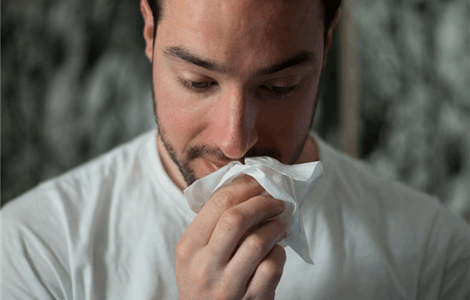
Cough is a symptom of an underlying medical issue rather than an illness in itself. Here are some signs that will help you know if your cough is serious and when to call our home GP for a cough in Costa del Sol.
What is a cough?
When you cough, it is either voluntary or involuntary, and it is your body's method of helping to cleanse the airways of irritants while also protecting you from infection.
Coughs are classified as acute, subacute, or chronic based on how long they persist and how severe they are.
- Coughs that persist shorter than three weeks are considered acute.
- Subacute coughs endure three to eight weeks and persist even after the underlying cold or respiratory illness has passed.
- Coughs that linger longer than eight weeks are considered chronic.
When to call our Home GP for a cough in Costa del Sol
If your cough (or your child's cough) does not go away after a few weeks or if it is accompanied by any of the following symptoms, call our Home GP for a cough in Costa del Sol:
- The phlegm is thick and greenish-yellow, and the coughing is violent.
- Breathing with a whistling or rattling sound in the chest
- A fever has set in.
- Shortness of breath is being experienced.
- Fainting episodes are being experienced.
- Having ankle edema or experiencing weight loss.
If you or your kid is experiencing any of the following symptoms:
- Vomiting or choking
- Breathing or swallowing issues.
- Sneezing reddish or pink phlegm.
- Having chest ache.
Self-care measures
Cough medications are often reserved for usage when coughing is an acute condition that produces significant pain and interferes with sleep, and when it is not linked with any of the potentially problematic symptoms described above. If you take cough medication, be sure to follow the manufacturer's directions on how much to take or call our Home GP for a cough in Costa del Sol.
Cough and cold medications sold over-the-counter are meant to alleviate the symptoms of coughs and colds, rather than to treat the underlying condition. According to research, these medications have not been shown to be any more effective than inactive medications (placebo). More importantly, these drugs have the potential to cause catastrophic adverse effects, including lethal overdoses in children under the age of two years. Talk to our Home GP for a cough in Costa del Sol before you take any medication.
Coughs and colds in children less than 6 years of age should not be treated with over-the-counter medications, with the exception of fever reducers and pain relievers. In addition, consider avoiding the use of these medications in children less than the age of 12 years.
Try the following suggestions to alleviate your cough:
- Take hard candies or cough drops. They may be useful in alleviating a dry cough and soothing an inflamed throat. Because of the danger of choking, they should not be given to children under the age of 6.
- Consider consuming honey as a supplement. It is possible that a spoonful of honey can assist ease a cough. Honey should not be given to children under the age of one year because honey may contain germs that are dangerous to newborns.
- Make the air more moisturising. Take a steamy shower or use a cool mist humidifier.
- Drink plenty of fluids. Liquids aid in the thinning of mucus in the throat. Warm liquids, such as broth tea or freshly squeezed lemon juice, might help to relieve sore throats.
- Stay away from cigarette smoke. Coughing while smoking or inhaling secondhand smoke might aggravate the condition.